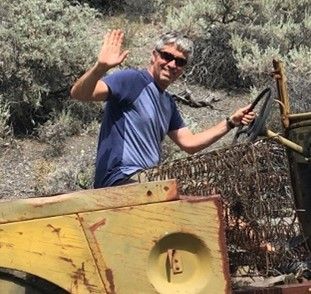NRESi Colloquium - What is the Airborne Coastal Observatory (ACO) and what does it do? - Dr Brian Menounos

Thanks to all of us, Earth’s atmosphere and surface are rapidly changing. Earth observations (EO) provide one approach to monitor these changes. EO are also valuable to refine theory for many scientific disciplines since these observations also provide important datasets required to improve physically based models of natural phenomena. While Space might be the final frontier and the logical place for EO, airborne remote sensing provides an important bridge between ground and existing spaceborne sensors. In 2013, UNBC secured its first airborne laser scanner through grants from the Canada Foundation for Innovation and the BC Knowledge Development Fund. Since that time, a close partnership with the Hakai Institute allowed us to expand our remote sensing capacities. In this talk, I’ll describe the history behind the Airborne Coastal Observatory, how it works, what it measures and what we hope to achieve in the years ahead. I will consider some examples of glacier change, flooding and landslides to illustrate the innovative science that the ACO helps to support.
The Natural Resources & Environmental Studies Institute (NRESi) at UNBC hosts a weekly lecture series at the Prince George campus. Anyone from the university or wider community with interest in the topic area is welcome to attend. Presentations are also made available to remote participants through Zoom Webinar. Go to http://www.unbc.ca/nres-institute/colloquium-webcasts to view the presentation remotely.
Past NRESi colloquium presentations and special lectures can be viewed on our video archive, available here.
Contact Information
Jacqui Dockray
Research Project Officer,
Natural Sciences and Engineering
Phone: 250-960-6357
Email: Jacqueline.Dockray@unbc.ca